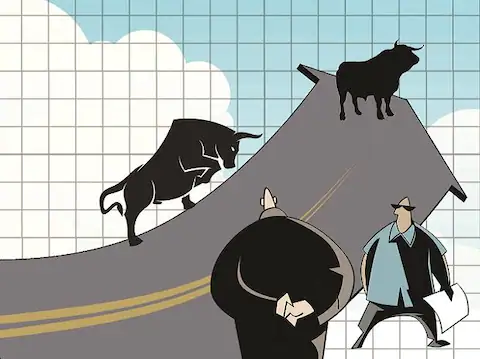Psychology and Risk Management
• What to expect
• Risks
• Position sizing
• illusion of control
• Accepting critisism
• Paralyzed by fear
• Loss is a feedback, not a failure
• The flexible trader
• Focusing on the positive
• Short straddle
• The dynamics of greed
• The herd mentality
• Notes
When your money is at stake, you are forced to take precautions. Avoid recklessly gambling with your money so that you end yourself in debt and have to work twice as hard to break even. However, you don’t want to become stationary. Carefree trading is a trait of successful traders. They don’t aim for an impossible standard of perfection. They act, deal with issues as they arise, and most importantly, they engage in transactions.

Pursuing perfectionism is rewarded in many professions. Studies of ambitious, successful individuals, for instance, have shown that they are persistent in working on a task until their comparatively high standards are reached, but they do not go overboard to the point of procrastination. When someone reaches a predetermined standard, they finish the task and move on. But many people are reluctant to risk failure and potential embarrassment because they don’t want to lose face.
Mark Douglas writes in his book “Trading in the zone” that inexperienced traders look for excuses not to place transactions. They might persuade themselves, for instance, that they need to learn new trade techniques. These justifications, however, are frequently evasions of accountability for carrying out a deal. Instead of making a trade and dealing with their limits, they would prefer to consider their options. However, traders must act immediately. Never attempt to overcome a challenge by backing down. Despite this, it’s only normal to want to double-check everything before making a trade. How many times have you ignored a potential negative event and then paid the price?
You’ve learnt the value of great caution the hard way. But in the end, you also realise that you need to act. You must take ownership of your actions and create a deal.
How can the pressure of taking chances be lessened? The first obvious option is to use risk management to reduce possible losses. You’ll really feel like you have little to lose if you keep the amount of risk to a modest portion of your account. Second, don’t give a trade more emotional weight than it deserves. It’s just your work; it’s not your baby. You’ll feel more at ease and be able to complete the trade more easily if you approach it objectively and professionally.
Third, you must be prepared to acknowledge the psychological reality that trading results are unpredictable.
Until you actually make a trade and see how it plays out, you can never tell for sure how it will end out.
While it may be challenging in the moment, facing the consequences is an important part of learning. Finding out just how difficult trading can be may be painful, but you’ll discover that in the long run, if you take personal risks, minimise the actual financial repercussions, and learn from your mistakes, you’ll become an expert in the markets. And the psychological suffering you had to go through in order to learn was well worth it. So don’t be reluctant to get in.
